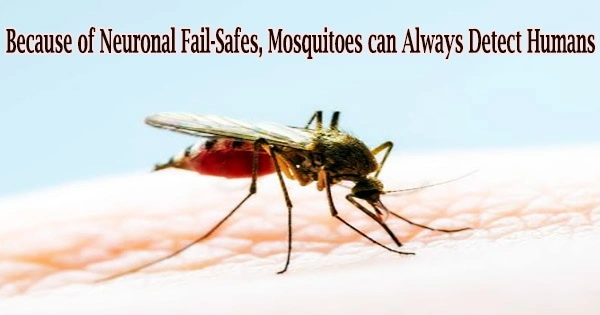Female mosquitoes detect a distinctive concoction of body scents humans release into the atmosphere while they are searching for a human to bite. The mosquitoes’ antennae are then stimulated by these scents. To make people invisible to mosquitoes, researchers have attempted to eliminate these receptors.
However, mosquitoes still manage to bite us despite having an entire family of odor-sensing receptors removed from their genome. Now, a team of scientists discovered that mosquitoes have evolved redundant fail-safes in their olfactory system that make sure they can always perceive our odors, according to a study published in the journal Cell on August 18, 2022.
“Mosquitoes are breaking all of our favorite rules of how animals smell things,” says Margo Herre, a scientist at Rockefeller University and one of the lead authors of the paper.
In most animals, an olfactory neuron is only responsible for detecting one type of odor.
“If you’re a human and you lose a single odorant receptor, all of the neurons that express that receptor will lose the ability to smell that smell,” says Leslie Vosshall of the Howard Hughes Medical Institute and a professor at Rockefeller University and the senior author of the paper. But she and her colleagues found that this is not the case in mosquitoes.
“You need to work harder to break mosquitoes because getting rid of a single receptor has no effect,” says Vosshall. “Any future attempts to control mosquitoes by repellents or anything else has to take into account how unbreakable their attraction is to us.”
“This project really started unexpectedly when we were looking at how human odor was encoded in the mosquito brain,” says Meg Younger, a professor at Boston University and one of the lead authors of the paper.
If you’re a human and you lose a single odorant receptor, all of the neurons that express that receptor will lose the ability to smell that smell. You need to work harder to break mosquitoes because getting rid of a single receptor has no effect.
Leslie Vosshall
They discovered that amines, another class of chemical used by mosquitoes to search for humans, also excite neurons that are stimulated by the human odor 1-octen-3-ol. This is remarkable because all known theories about how animals perceive smell predict that 1-octen-3-ol neurons should not be able to identify amines because they encode odor with restricted specificity.
“Surprisingly, the neurons for detecting humans through 1-octen-3-ol and amine receptors were not separate populations,” says Younger.
This may serve as a fail-safe, allowing all human-related scents to trigger “the human-detecting component” of the mosquito brain even if some receptors are missing.
In order to determine whether additional receptors are expressed by specific mosquito olfactory neurons, the scientists also used single-nucleus RNA sequencing.
“The result gave us a broad view of just how common co-expression of receptors is in mosquitoes,” says Olivia Goldman, another lead author of the paper.
According to Vosshall, other insects might have a comparable process. The Johns Hopkins University research team of Christopher Potter has discovered that fruit flies’ neurons co-express identical receptors.
“This may be a general strategy for insects that depend heavily on their sense of smell,” says Vosshall.
In the future, Meg Younger’s group plans to uncover the functional significance of the co-expression of different types of olfactory receptors. This work was partially supported by the U.S. National Institute of Health.





